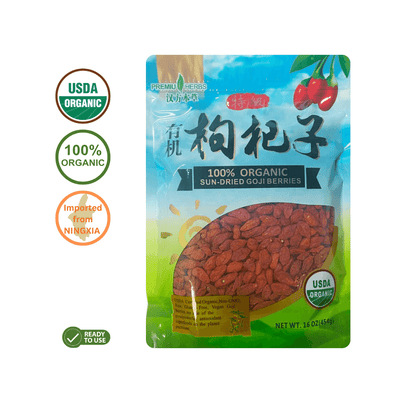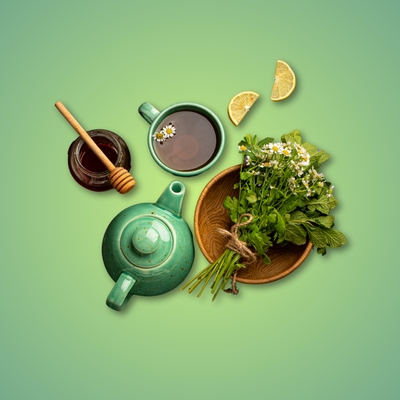In the ever-evolving world of health and wellness, the allure of natural remedies continues to captivate those seeking to enhance their well-being. Among the myriad of herbal infusions, goji berry tea has emerged as a vibrant and potentially health-boosting beverage. With its striking red hue and subtly sweet flavor, this tea not only offers a delightful sensory experience but also carries a rich history rooted in ancient traditions, now gaining recognition as a modern-day superfood [1]. For centuries, goji berries have been treasured in traditional practices, and their recent surge in global popularity reflects a growing appreciation for their potential to contribute to a healthy lifestyle [1]. This exploration will delve into the fascinating world of goji berry tea, uncovering its historical significance, potential health benefits, possible side effects, diverse recipes, flavor profile, where to source high-quality berries, its cultural importance, and the scientific evidence that underpins its reputation.
A Journey Through Time: The Rich History and Origins of Goji Berries
The story of goji berries is deeply intertwined with the ancient tapestry of traditional Chinese medicine, dating back over two millennia [1]. Scientifically known as Lycium barbarum, these bright orange-red berries originate from a shrub native to Asia, thriving particularly in the regions of China, Mongolia, and Tibet [1]. Legend has it that a keen-eyed doctor, observing an ancient society residing in a remote valley, noted the remarkable longevity and vitality of the people who regularly consumed goji berries [1]. This observation marked the beginning of the berry's revered status for its health-promoting properties.
In the annals of traditional Chinese medicine, goji berries have been employed for centuries as a remedy for various ailments [1]. Ancient texts, such as the Shen Nong Ben Cao Jing, the oldest reference book of Chinese medicinal herbs, ranked goji berry as a top-grade herb, signifying its safety and notable health benefits [3]. This historical endorsement underscores the deep cultural and medicinal significance attributed to these berries over countless generations. The name "goji" itself is believed to have originated from the Chinese word "gǒuqǐ," the term used to refer to the berry-producing plant Lycium chinense in several Chinese dialects [1]. This enduring legacy speaks volumes about the perceived value and efficacy of goji berries in promoting well-being.

Unlocking the Benefits: What Makes Goji Berry Tea So Good for You?
Goji berries have garnered significant attention for their impressive nutritional profile, packed with a wealth of vitamins, minerals, and potent antioxidants [1]. Sipping on goji berry tea allows you to tap into these beneficial compounds, potentially contributing to various aspects of your health.
One of the most celebrated attributes of goji berries is their remarkable antioxidant content. They are rich in various antioxidants, including zeaxanthin, beta-carotene, and polysaccharides [1]. These powerful compounds play a crucial role in neutralizing harmful free radicals in the body, which are known to contribute to aging and the development of chronic diseases. The abundance of research highlighting the antioxidant properties of goji berries underscores this as a primary and well-recognized benefit.
Goji berry tea may also contribute to a robust immune system. The berries are a good source of vitamins A and C, both of which are essential for maintaining healthy immune function [1]. Vitamin C, in particular, is known for its role in supporting the production of white blood cells, which are vital for fighting off infections and illnesses.
Furthermore, goji berries are particularly beneficial for eye health. They are exceptionally rich in antioxidants, especially zeaxanthin and beta-carotene, which can help protect the eyes from age-related diseases such as macular degeneration [1]. Studies have indicated that zeaxanthin can reduce the risk of developing this leading cause of blindness in older adults [1].
The high antioxidant content of goji berries also plays a role in maintaining healthy skin. These compounds help combat oxidative stress, which can lead to wrinkles, sun damage, and other skin conditions [1]. Beta-carotene, also abundant in goji berries, is known for its ability to promote healthier skin and even provide a natural glow [1].
For those seeking a natural energy boost without the jitters of caffeine, goji berry tea might be an excellent choice. Traditionally used to increase energy and enhance mood, goji berries have a rich nutritional profile that can help improve energy levels and reduce fatigue [1]. Notably, goji berry tea is naturally caffeine-free [1].
Emerging research also suggests that goji berries may play a role in stabilizing blood sugar levels. Their high fiber content can help slow down sugar absorption in the blood, preventing sudden spikes and crashes [1]. Furthermore, some studies have shown that goji berries can improve insulin sensitivity [1].
In traditional Chinese medicine, goji berries have a long history of use for supporting liver health [1]. While more research is needed, some studies suggest that goji berries may help support the health and function of the liver [1].
To provide a clearer picture of the nutritional value, here is a summary of the key nutrients found in goji berries:
Nutrient Profile of Goji Berries [5]
|
Nutrient |
Amount per 28g (approx. 5 tbsp dried) |
% Daily Value |
|
Calories |
98 |
- |
|
Protein |
4g |
8% |
|
Fat |
0.1g |
0% |
|
Carbohydrates |
21.6g |
- |
|
Fiber |
3.6g |
14% |
|
Sugar |
12.8g |
- |
|
Iron |
- |
11% |
|
Vitamin A |
- |
250% |
|
Vitamin C |
- |
15% |
A Word of Caution: Potential Side Effects and Who Should Be Mindful
While goji berry tea offers a range of potential health benefits, it's important to be aware of potential side effects and contraindications [5]. Most healthy adults can enjoy goji berries in moderation as part of a balanced diet [5]. However, some individuals may experience allergic reactions, which can manifest as skin rashes, itching, and gastrointestinal discomfort [5]. People with allergies to tobacco, peaches, tomatoes, and nuts might also be allergic to goji berries [34].
Goji berries can interact with certain medications, particularly blood thinners like warfarin, potentially increasing the risk of bleeding [5]. They may also interact with diabetes drugs, potentially causing blood sugar levels to drop too low, and with blood pressure medications, possibly leading to excessively low blood pressure [5]. A case report highlighted a potential interaction between goji berries and flecainide, a medication used for irregular heartbeat, leading to toxicity [40].
Pregnant and breastfeeding women are generally advised to avoid goji berries due to the presence of betaine, a chemical that might cause uterine contractions and potentially lead to miscarriage [34]. Individuals with already low blood pressure should also exercise caution, as goji berries might further lower blood pressure [34]. Some people might experience mild digestive issues when they first start consuming goji berries [36].
It is crucial to consume goji berries in moderation and to consult with a healthcare professional before adding goji berry tea to your diet, especially if you have any pre-existing health conditions or are taking medications [5].
Here is a table summarizing potential drug interactions with goji berries:
Potential Drug Interactions with Goji Berries
|
Medication Type |
Specific Examples |
Potential Interaction |
|
Blood Thinners |
Warfarin (Coumadin) |
Increased risk of bleeding and bruising |
|
Diabetes Medications |
Insulin, Glipizide, Glyburide, etc. |
May cause blood sugar to drop too low |
|
High Blood Pressure Meds |
Captopril, Losartan, Valsartan, Amlodipine, etc. |
May cause blood pressure to drop too low |
|
Flecainide |
Tambocor |
May increase levels of flecainide in the body, leading to toxicity and heart issues |
|
Medications metabolized by liver |
Amitriptyline, Diazepam, Ibuprofen, etc. |
Goji might decrease how quickly the liver breaks down these medications |
Brewing the Perfect Cup: Delicious Goji Berry Tea Recipes to Try
Preparing goji berry tea is a simple and rewarding process, allowing you to customize your brew to your liking [12]. The most basic method involves steeping dried goji berries in hot water. Simply add about a tablespoon of dried goji berries to a cup and pour boiling water over them. Let it steep for 5-10 minutes, or longer for a more intense flavor. You can also eat the softened berries after drinking the tea [12].
For an invigorating twist, consider making Goji Berry and Ginger Tea. Ginger not only adds a spicy warmth but also complements the digestive benefits of goji berries [31]. To prepare, combine 1 tablespoon of dried goji berries with a ½ inch piece of sliced fresh ginger in a cup. Pour boiling water over the mixture and steep for 5-10 minutes. Sweeten with honey or your preferred sweetener if desired.
Adding a touch of lemon can create a refreshing and immune-boosting Goji Berry Tea with Lemon [45]. Steep 1 tablespoon of dried goji berries in a cup of boiling water for 5-10 minutes. Then, squeeze in the juice of half a lemon. You can also add a slice of lemon to garnish.
Combine the antioxidant power of goji berries with the well-known benefits of green tea in a Goji Berry Green Tea [12]. Steep 1 teaspoon of green tea leaves or a tea bag along with 1 tablespoon of dried goji berries in a cup of hot water (slightly below boiling for green tea) for 2-3 minutes.
For a cooling beverage, especially on warmer days, try Iced Goji Berry Tea [47]. Steep goji berries in hot water as usual, then let the tea cool completely. Strain out the berries and serve the tea over ice. You can add lemon or orange slices for extra flavor.
Beyond these simple recipes, you can explore variations like Pear and Goji Tea, which offers a soothing blend, or Black Sesame and Goji Berry Tea for a unique twist [61]. Feel free to experiment with adding other ingredients such as cinnamon sticks, honey, or different types of tea to create your perfect goji berry tea blend.

A Symphony of Flavors: Exploring the Taste and Aroma of Goji Berry Tea
Goji berry tea offers a unique and pleasant sensory experience. The flavor is often described as slightly sweet and tangy, with many likening it to a cross between a cranberry and a cherry or raisin [1]. Some also detect subtle herbal undertones, adding complexity to the taste [1]. The brewing method and any additional ingredients can influence the final flavor profile, allowing for a customized experience.
The aroma of goji berry tea is typically fruity, often described as tangy and sometimes subtly floral, especially when combined with ingredients like green tea or lavender [57]. One description notes a "raisin-sweet, mellow, and soothing" aroma [64], while another highlights a "mildly sweet and mildly tangy" scent [54]. The overall sensory experience is often refreshing and inviting. For those who prefer a sweeter taste, the natural tartness of goji berries can be easily balanced with the addition of honey or maple syrup [12].
More Than Just a Drink: The Cultural Significance of Goji Berry Tea
Goji berries hold a significant place in traditional Chinese culture, extending far beyond their nutritional value [1]. Revered for over two millennia, they are deeply associated with longevity, vitality, and even immortality in ancient folklore [1]. In Chinese culture, goji berries often symbolize prosperity and good fortune, making them a common inclusion in celebrations, weddings, and Lunar New Year festivities [82].
Traditional Chinese medicine emphasizes the harmonizing properties of goji berries, believing they help balance the Yin and Yang energies within the body, which is considered crucial for overall health and well-being [82]. Goji berry tea, in particular, is a time-honored method of consumption in Chinese tradition [12]. The cultural significance is so profound that Ningxia Province in China, a major goji berry producing region, even holds an annual Goji Berry Festival to celebrate the harvest [15]. This deep-rooted cultural connection underscores the enduring value placed on goji berries and their contribution to well-being.
The Science Behind the Sip: What Research Says About Goji Berries
While the traditional uses of goji berries are extensive, scientific research into their specific effects, particularly in the form of tea, is still an evolving field [20]. However, numerous studies have investigated the general health benefits of goji berries, often using the whole berry, juice, or extracts. These findings provide insights into the potential effects that might extend to goji berry tea as well.
Research suggests that goji berries may have favorable effects on lipid profiles, including increasing levels of HDL cholesterol, often referred to as "good" cholesterol [1]. They have also shown potential in improving glucose metabolism by reducing fasting glucose concentrations [1]. Furthermore, the potent antioxidant properties of goji berries have been consistently demonstrated in various studies [1]. Some research indicates that consuming goji berries may lead to improvements in quality of life, including reduced fatigue and better sleep [1]. Potential benefits for eye health, particularly in relation to macular degeneration, and for supporting immune function have also been explored in scientific studies [1]. Notably, a study specifically examining goji berry tea demonstrated its high total phenolic content and significant antioxidant activity [14]. While some studies have focused on goji berry juice or supplements, the water-soluble nature of many of the beneficial compounds suggests that these effects could likely be present in the tea as well.
Conclusion: Embrace the Goodness of Goji Berry Tea
Goji berry tea stands as a testament to the enduring wisdom of traditional remedies, now embraced by modern science for its potential health-promoting properties. From its ancient origins in traditional Chinese medicine to its current status as a celebrated superfood, goji berries offer a rich history and a wealth of potential benefits. Whether you are drawn to its subtly sweet and tangy flavor, its ease of preparation in various recipes, or the potential boost it may offer to your well-being, goji berry tea is a delightful addition to any wellness routine. As you sip on this vibrant infusion, you are not only enjoying a delicious beverage but also connecting with centuries of tradition and exploring the potential of nature to support a healthy and fulfilling life.








